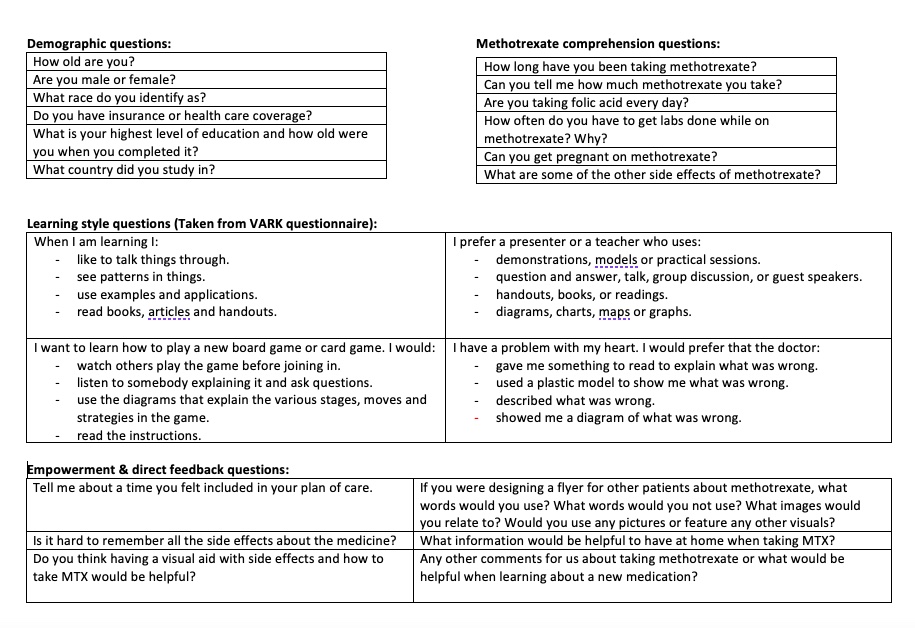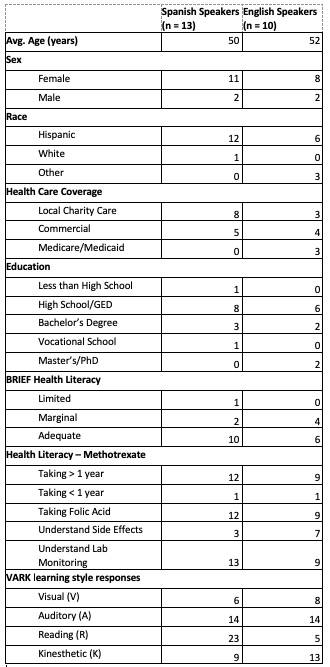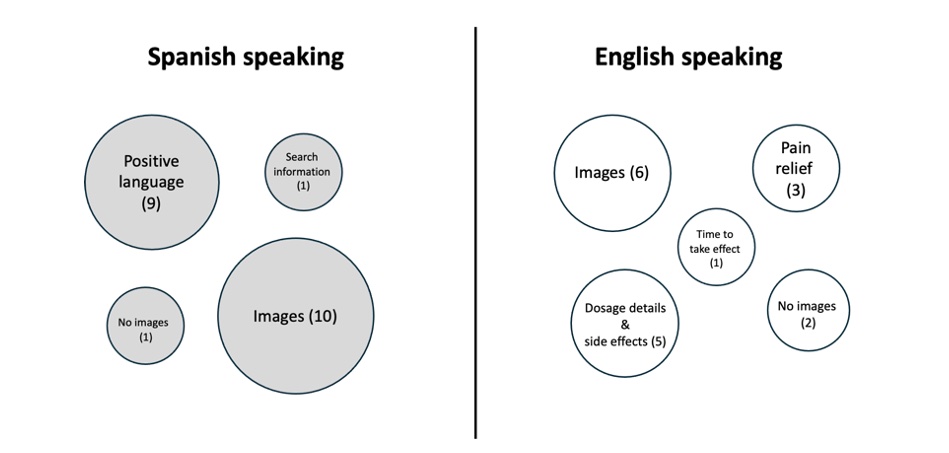Session Information
Session Type: Poster Session B
Session Time: 10:30AM-12:30PM
Background/Purpose: Methotrexate (MTX) remains the first-line treatment for RA due to its effectiveness and affordability, but communicating its complex regimen and instructions can be challenging, especially for patients with low health literacy or limited English proficiency. This project aims to gather direct feedback from underserved English and Spanish speaking patients on their preferences and recommendations for learning about MTX.
Methods: Patients on MTX seen in clinic in the past 6 months were recruited from our rheumatology clinic located in a federally qualified health center. Our study survey was conducted via telephone between May-September 2023. Phone language translation services were used when needed.
The study survey created by our research team had four sections: demographics, methotrexate comprehension, VARK learning style items1 and patient empowerment open-ended questions (Figure 1). To assess health literacy, we utilized the BRIEF screening tool2.
To interpret answers to VARK questions, each answer choice is associated with a respective learning style (V=visual, A=auditory, R=reading, K=kinesthetic). Responses were counted individually. The open-ended responses were reviewed by the authors and themes were created. A bubble chart was created from direct feedback from patients.
Results: Twenty-three patients, 10 English and 13 Spanish-speaking, completed the survey. Most patients were Hispanic women with a high school level education who reported adequate health literacy (70%) (Table 1). Many showed correct use of folic acid and reason for lab monitoring. Fifty percent were unable to recall side effects correctly, with only 23% of Spanish-speakers able to. English-speakers reported strongest preference for kinesthetic (35%) and auditory learning styles (33%). Spanish-speakers preferred reading (44%) and auditory learning styles (27%). Both showed less preference for visual learning style (15%) based on VARK questions.
Spanish-speakers highlighted a need for clearer explanations about potential side effects. Common advice for new patients included patience in allowing medication to take full effect and staying consistent with taking MTX. Many suggested sharing lifestyle characteristics with their doctor to help set expectations around the best ways to take MTX.
Open-ended responses mention usefulness in incorporating images into educational materials for patients new to MTX, particularly in Spanish speakers, who also mention importance of using positive language in learning materials.
Conclusion: Our study provided valuable insights directly from patients showing a preference for a multimodal approach to learning with differences among English and Spanish speakers. We can use this information for the next phase of our project by creating tailored, patient-centered educational materials for our patients starting MTX, aiming to enhance adherence and comprehension from the outset of treatment.
1. Leite WL, et al. Attempted validation of the scores of the VARK: Learning styles inventory with multitrait–multimethod confirmatory factor analysis models. Educ Psychol Meas 2010, 70:323–339.
2. Haun J, et al. Testing the BRIEF health literacy screening tool. Fed Pract 2009; 26: 24-31.
Comparison of Spanish and English speakers of words/themes used to answer open-ended question: “If you were designing a flyer for other patients about methotrexate, what words, pictures, or other features would you use or avoid?
To cite this abstract in AMA style:
Patel V, Dove S, Chavez V. Optimizing Communication of Methotrexate (MTX) Side Effects: A Patient-Centered Approach Focused on Learning Styles and Preferred Language [abstract]. Arthritis Rheumatol. 2024; 76 (suppl 9). https://acrabstracts.org/abstract/optimizing-communication-of-methotrexate-mtx-side-effects-a-patient-centered-approach-focused-on-learning-styles-and-preferred-language/. Accessed .« Back to ACR Convergence 2024
ACR Meeting Abstracts - https://acrabstracts.org/abstract/optimizing-communication-of-methotrexate-mtx-side-effects-a-patient-centered-approach-focused-on-learning-styles-and-preferred-language/



